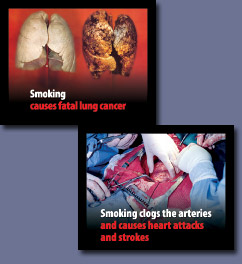 |
|
|
With the re-organisation of the NHS which has led to it being privatised last week, a major report showing death rates from cancer amongst women in the UK being amongst the worst in Europe; a new study shows it is only getting worse.
 The age-adjusted death rate from cancer in Europe will continue its downward trend in 2013, according to research published last week in Annals of Oncology. However, soon afterwards, a new and striking feature is predicted to emerge: by 2015, deaths from lung cancer in women could overtake those from breast cancer—the current leading cause of cancer death. The age-adjusted death rate from cancer in Europe will continue its downward trend in 2013, according to research published last week in Annals of Oncology. However, soon afterwards, a new and striking feature is predicted to emerge: by 2015, deaths from lung cancer in women could overtake those from breast cancer—the current leading cause of cancer death.
Women's lung cancer deaths show a clear inverse trend compared with most other cancers. Whereas deaths from gastric and uterine cancer have plummeted in the past four decades, and those from breast cancer have steadily declined since a peak in around 1990, deaths from lung cancer have continued a relentless upward trajectory, reflecting the devastating consequences of many women taking up smoking in the 1960s. Lung cancer death rates are almost three times higher for European men than for women, but the gap is closing.
A 5-year relative survival for lung cancer is poor in Europe—around 12%—and varies between countries. Survival in Denmark, the UK, and the Czech Republic is well below the European average.
In another study published last week in Thorax, researchers used population data to try to drill down into some of the reasons for this international variation. Although differences in stage at diagnosis accounted for some of it, stage-specific survival also differed. Survival for TNM stage 1 disease in the UK was substantially lower than in Sweden, for example, suggesting that treatment (and population) differences also play a part.
 International comparisons such as these can help policy makers identify deficiencies in health-service provision, and should be given due consideration by governments across the region. Yet prevention remains the key to reducing the number of deaths from lung cancer. International comparisons such as these can help policy makers identify deficiencies in health-service provision, and should be given due consideration by governments across the region. Yet prevention remains the key to reducing the number of deaths from lung cancer.
As the Million Women Study showed last month, among UK women, two-thirds of all deaths of smokers in their 50s, 60s, and 70s are caused by smoking; smokers lose at least 10 years of lifespan. Although the hazards of smoking until age 40 years and then stopping are substantial, the hazards of continuing are ten times greater.
Stopping before age 40 years (and preferably well before age 40 years) avoids more than 90% of the excess mortality caused by continuing smoking; stopping before age 30 years avoids more than 97% of it. Approaches to stop smoking that target adult women would be an essential addition to existing policies to discourage uptake in young people.
Source: The Lancet
|
|
|
Designed, Hosted and Maintained by Union Safety Services
|


 The age-adjusted death rate from cancer in Europe will continue its downward trend in 2013, according to research published last week in Annals of Oncology. However, soon afterwards, a new and striking feature is predicted to emerge: by 2015, deaths from lung cancer in women could overtake those from breast cancer—the current leading cause of cancer death.
The age-adjusted death rate from cancer in Europe will continue its downward trend in 2013, according to research published last week in Annals of Oncology. However, soon afterwards, a new and striking feature is predicted to emerge: by 2015, deaths from lung cancer in women could overtake those from breast cancer—the current leading cause of cancer death. International comparisons such as these can help policy makers identify deficiencies in health-service provision, and should be given due consideration by governments across the region. Yet prevention remains the key to reducing the number of deaths from lung cancer.
International comparisons such as these can help policy makers identify deficiencies in health-service provision, and should be given due consideration by governments across the region. Yet prevention remains the key to reducing the number of deaths from lung cancer.